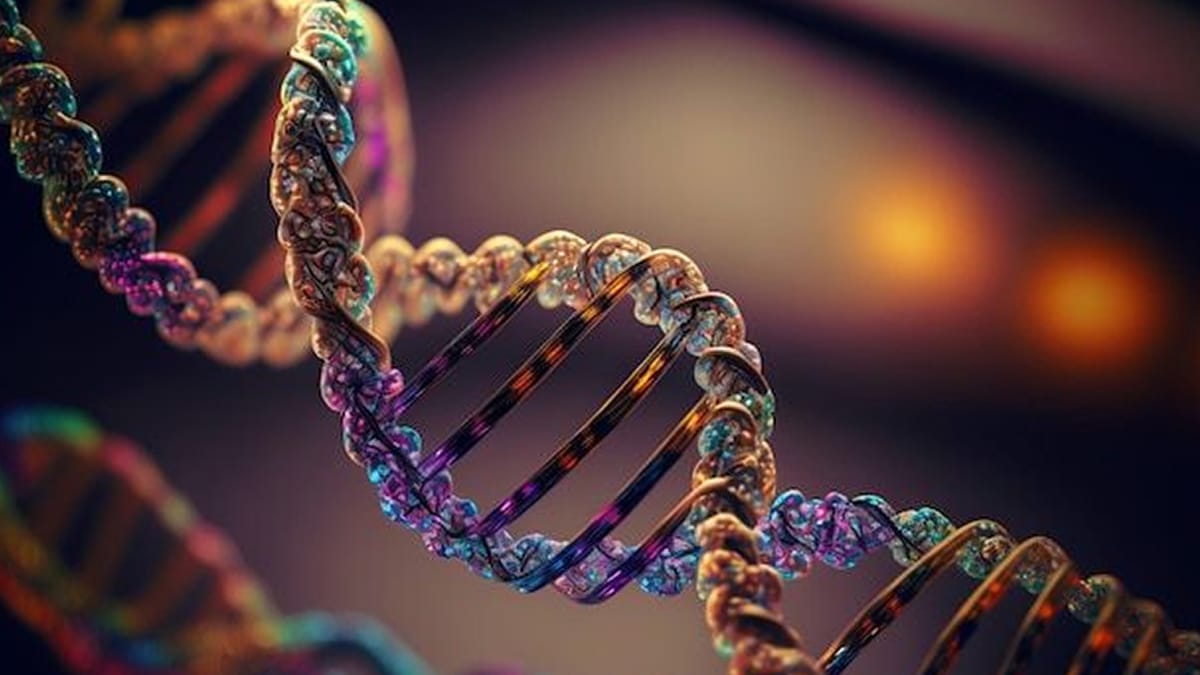How Does Genetics Affect Your Weight Loss Success
Genetics significantly impacts how your body responds to diet and exercise, making weight loss easier for some and more challenging for others.
How Does Genetics Affect Your Weight Loss Success
While lifestyle choices like nutrition and physical activity remain crucial, understanding your genetic makeup can help create a personalized approach that maximizes results. By exploring the connection between DNA and metabolism, you can uncover why certain strategies work better for you than for others.
Genetics refers to the study of genes and heredity, which play a vital role in determining physical characteristics, metabolic rate, and even appetite. In the context of weight loss, specific genes influence how your body stores fat, burns calories, and reacts to food. Some individuals may naturally burn more calories at rest due to genetic variations, while others may have a predisposition to store fat more easily.

Understanding Genetics and Weight Loss
For example, research has shown that people with certain variations in the FTO gene may experience increased appetite and higher body fat levels. Similarly, genes related to insulin sensitivity and lipid metabolism can affect how efficiently your body converts food into energy or stores it as fat. Understanding these factors allows individuals to adapt their diet and exercise routines to align with their genetic predispositions.
Key Genes That Influence Weight Loss
Several genes are commonly associated with weight regulation, metabolism, and fat storage:
FTO (Fat Mass and Obesity Associated Gene): This gene influences appetite and caloric intake. Individuals with a particular variant may feel hungrier more often, making portion control more challenging.
MC4R (Melanocortin 4 Receptor): Variations in this gene can affect energy balance, appetite, and satiety, potentially leading to overeating.
PPARG (Peroxisome Proliferator-Activated Receptor Gamma): This gene regulates fat cell development and insulin sensitivity, influencing how efficiently your body burns fat.
Scientific studies indicate that these genetic factors do not make weight loss impossible; rather, they provide insights into why some strategies may be more effective than others. For instance, someone with a strong FTO gene variant may benefit from high-protein, low-glycemic diets to maintain satiety and reduce cravings. Meanwhile, individuals with certain PPARG variants may respond better to specific forms of exercise, like resistance training, to enhance fat metabolism.
How Genetics Affects Appetite and Satiety
Genes also play a pivotal role in regulating appetite hormones, such as leptin and ghrelin. Leptin, known as the “satiety hormone,” signals the brain when you are full, while ghrelin, the “hunger hormone,” triggers appetite. Genetic variations can impact the sensitivity of these hormones, causing some individuals to feel hungry more frequently or struggle to recognize fullness cues.
Understanding these genetic influences allows you to adjust your nutrition and lifestyle strategies effectively. For example, incorporating protein-rich meals, fiber, and healthy fats can help balance appetite signals, particularly for those genetically prone to overeating. Additionally, mindful eating practices, regular meal timing, and avoiding high-glycemic foods can counteract genetic predispositions toward excessive calorie intake.
Genetics vs. Lifestyle: How Much Control Do You Really Have
While genetics undeniably influence weight loss, lifestyle choices remain the dominant factor in long-term success. Your genes may predispose you to store fat more efficiently or feel hungrier, but behaviors like nutrition, exercise, sleep, and stress management can override many genetic tendencies.
For example, someone with a variant in the FTO gene may have a stronger appetite, yet adopting a high-protein diet, consistent meal schedule, and regular physical activity can significantly counteract these effects. Genetics set the stage, but your daily habits dictate the performance.
Personalized Weight Loss Strategies Based on Genetics
Understanding your genetic profile can help you design a personalized weight loss plan that is far more effective than generic advice. Here’s how different genetic considerations can shape your approach:
Appetite Control: If genes increase hunger or cravings, focus on nutrient-dense, high-protein meals, fiber-rich vegetables, and healthy fats to maintain satiety.
Metabolism Optimization: Variations in metabolism-related genes can affect how efficiently you burn calories. Incorporate interval training and strength exercises to boost metabolic rate.
Fat Storage: For individuals prone to storing fat in the abdominal area due to genetic predispositions, combining aerobic exercises with core-targeted workouts can help reduce visceral fat more effectively.
Insulin Sensitivity: Genes affecting insulin response may require a lower carbohydrate diet with complex carbs and minimal refined sugars to prevent fat accumulation.
By aligning your nutrition and fitness regimen with your genetic tendencies, you can achieve sustainable results and reduce frustration. Personalized strategies not only improve efficiency but also increase adherence since the plan is tailored to how your body actually functions.
Common Misconceptions About Genetics and Weight Loss
Many people believe that genetics completely determine body weight, but this is a misconception. Research consistently shows that lifestyle choices can significantly modulate genetic risk:
Myth 1: “If I have bad genes, I can’t lose weight.” Reality: Genetics may make weight loss more challenging, but consistent diet and exercise remain effective.
Myth 2: “Genes determine where I gain fat.” Reality: While genetics influence fat distribution patterns, overall body fat can be reduced through proper lifestyle interventions.
Myth 3: “One diet fits all genetic types.” Reality: Genetic variation requires individualized approaches; what works for one person may not work for another.
Recognizing the difference between genetic predisposition and determinism empowers individuals to make proactive choices. Rather than seeing genes as a limitation, treat them as a guide to optimize your weight loss plan.
Tracking Progress and Adjusting Strategies
Monitoring your progress becomes crucial when considering genetics. Techniques like tracking body composition, energy levels, and appetite patterns can reveal how your body responds to various strategies. Over time, data-driven adjustments allow you to refine exercise routines, macronutrient ratios, and meal timing, leading to a more precise, genetics-informed approach.
Some advanced tools, including DNA-based diet and fitness tests, provide personalized insights into nutrient metabolism, fat storage tendencies, and exercise responsiveness. Integrating these insights with real-world tracking ensures a proactive, adaptable approach to weight loss that maximizes results despite genetic predispositions.
Scientific Studies Supporting Genetics-Based Weight Loss Approaches
Recent research highlights how genetics influence weight loss outcomes, but also underscores the power of lifestyle. For instance, a 2020 study in the International Journal of Obesity found that participants with a high-risk FTO gene variant who followed a structured diet and exercise program lost similar amounts of weight as those without the variant. This demonstrates that behavioral interventions can override genetic predispositions.
Another study published in Nature Metabolism examined how variations in genes affecting fat metabolism influenced the response to high-protein diets. Participants genetically predisposed to slower fat oxidation achieved more significant fat loss when diets were adjusted to their metabolic tendencies. These studies validate the concept of personalized nutrition and fitness based on DNA.
Real-Life Examples: Success Stories
Consider Jane, a 34-year-old professional with a genetic predisposition to abdominal fat accumulation. After testing her genes, she adopted a low-glycemic, high-protein diet and a mix of resistance and interval training. Within six months, she lost 12 kilograms, reduced waist circumference, and improved her metabolic markers.
Similarly, Michael, 42, genetically prone to increased appetite, managed his cravings by incorporating high-fiber meals and structured meal timing. Over eight months, he lost 18 pounds without extreme dieting, proving that understanding genetic tendencies allows for smarter, sustainable strategies.
Practical Tips for Weight Loss Considering Genetics
Focus on Habit Consistency: Genetics may make certain aspects of weight loss harder, but consistent habits override most genetic limitations.
Monitor Key Metrics: Track body composition, energy levels, and hunger cues to adjust diet and exercise accordingly.
Personalize Your Plan: Tailor macronutrient ratios, exercise types, and meal timing based on how your body responds.
Leverage Technology: Consider DNA-based testing or metabolic analysis for data-driven insights.
Seek Professional Guidance: Nutritionists or trainers familiar with genetic considerations can optimize your plan effectively.
Frequently Asked Questions (FAQ)
1. Can my genes completely prevent me from losing weight?
No. While genetics influence weight loss ease, lifestyle choices like diet, exercise, and sleep play a dominant role. Most people can achieve weight loss despite genetic predispositions.
2. Should I get a genetic test before starting a diet?
Optional but beneficial. Genetic insights can help tailor your plan for appetite, metabolism, and fat storage tendencies.
3. How long before I see results if my genes predispose me to slower fat loss?
Results vary, but consistent adherence to a personalized plan can produce noticeable changes within 8–12 weeks.
4. Can exercise offset genetic risks for fat accumulation?
Absolutely. Resistance training, HIIT, and aerobic exercises improve metabolism and reduce fat storage, even in genetically predisposed individuals.
5. Are certain diets better for specific genetic profiles?
Yes. For example, high-protein diets may benefit those with genes affecting fat oxidation, while low-glycemic diets can help individuals prone to insulin sensitivity issues.
Recommended Products for Support:
Fitness trackers to monitor activity and calories burned
Smart scales for tracking body composition
Meal prep containers for structured eating
High-quality protein powders or supplements
Digital apps for habit tracking and goal setting
Tips & Cautions:
Avoid one-size-fits-all diets; personalization is key.
Don’t rely solely on genetics as an excuse; active effort matters.
Track progress to adjust strategies for maximum results.
Combine nutrition, exercise, and sleep for best outcomes.
Stay patient; genetic tendencies may slow progress but don’t prevent success.
Final Thoughts: Key Takeaways for Genetics-Based Weight Loss Success
Genetics influence your starting point and response to interventions but do not dictate your destiny.
Personalized strategies based on genetic insights optimize results.
Consistency in diet, exercise, and lifestyle habits is crucial.
Monitoring and adjusting your plan based on your body’s response ensures sustainable progress.
Incorporate a variety of exercises—resistance, cardio, and HIIT—to counteract genetic predispositions.
Leverage technology and professional guidance to make informed decisions.
Focus on long-term wellness, not just short-term weight loss.
Reference & Additional Reading
Inspired by studies and insights from:
www.health.harvard.edu
www.menshealth.com
www.healthline.com
www.womenshealthmag.com
www.ncbi.nlm.nih.gov
www.webmd.com
www.medlineplus.gov
www.tridenttech.edu
www.burnexia.com

